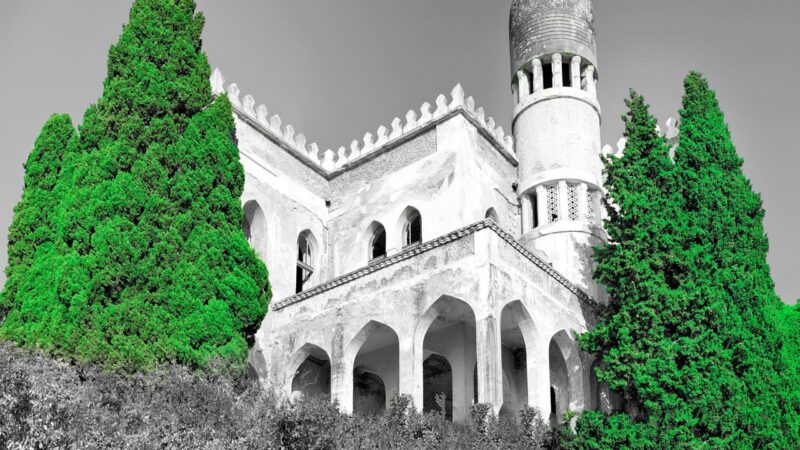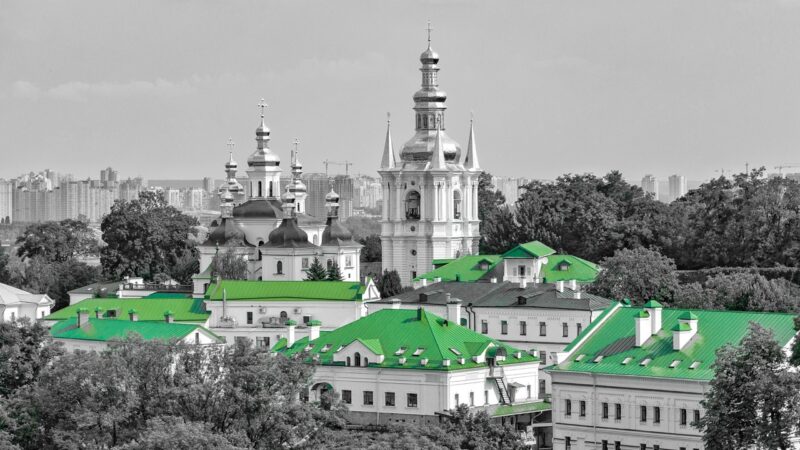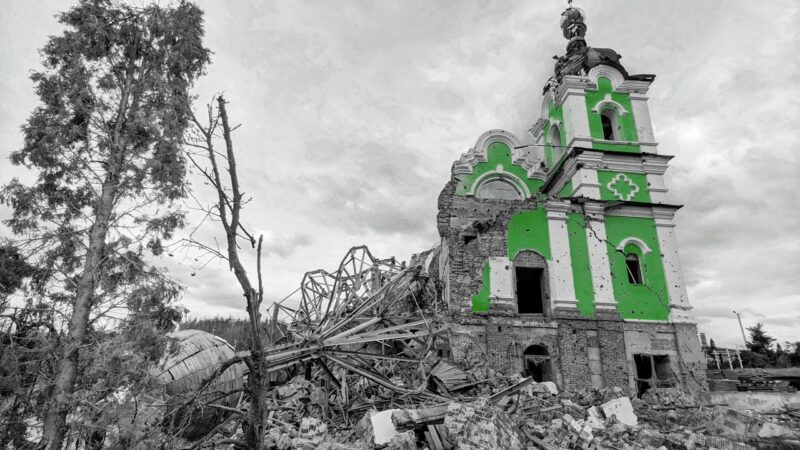Academy of Patrol Police: A cornerstone of Ukrainian law enforcement reform

The Revolution of Dignity in 2013–14 led to many profound changes in the Ukrainian state and society. Among those changes was a definitive demand of the Ukrainian people for a radical transformation of the law enforcement system. Unlike the Baltic states (Lithuania, Latvia, Estonia)—which after gaining independence from the Soviet Union resolutely broke with the Soviet tradition of government, particularly in the field of law enforcement—Ukraine continued to live for decades in the shadow of its Soviet legacy, with all its flaws and biases. The spirit of the Ukrainian militsiia ‘militia’, as the law enforcement agency used to be named, did not change much after the collapse of the USSR, and until its reorganization it continued to operate under the Soviet-era Law of the Ukrainian SSR “On the militia,” albeit with many amendments that accumulated over the years of independence, complicating the application of this law. Traditionally, the militia has been regarded by both the authorities and society as a means of state control over the people, not as guardians of human rights who serve and protect. Moreover, the difficulties of transition from Communism to a free-market economy created great risks for corruption among public servants, especially those who were supposed to uphold the law. Thus, at the end of 2013 when the revolutionary events began, the Ukrainian militia appeared deeply compromised and sunken in corruption, with an almost total loss of public trust.
The events of the Maidan Revolution became the last straw. The Yanukovych regime widely used militia structures to suppress civil resistance by fabricating criminal cases for the political persecution, harassing, and beating of civic activists. The culmination of this were the criminal acts of the infamous Berkut anti-riot militia detachment. Initially, Berkut members carried out mass beatings of peaceful unarmed protesters. Later, when events escalated, they committed outright mass murder by shooting more than one hundred protesters in Kyiv, subsequently commemorated in Ukrainian society as the Heavenly Hundred (lit. Heaven’s or Blessed Company). All this left an indelible stain on the militia’s reputation.
Not surprisingly given these circumstances, the old Soviet-style militia was abolished and a new Law of Ukraine “On the National Police” was adopted in 2015. To make a political decision is one thing, but to implement it in real life by creating a whole new institution is much more difficult, as Ukrainians were shortly to learn. The inertia of the old militia institutions, although renamed, was (and still is) immense. Many representatives of the “old guard” who managed to preserve their positions in law enforcement despite efforts to implement lustration of the security apparatus by the new Ukrainian government continue to directly or, more often, indirectly undermine police reform, using loopholes in the legislation, their knowledge of the practices and procedures of law enforcement agencies, and, especially, their personal contacts with power brokers among the Ukrainian authorities at all levels. To characterize this situation one could definitely use the term “deep state,” which has appeared recently in a number of academic publications.
In this situation, creation of the new patrol police might be considered a major success of law enforcement reform in Ukraine. It is the only department of the modern Ukrainian National Police that was created from scratch. As the first response force, the patrol police directly communicate with Ukrainian citizens, more than any other branch of the police force. Patrol police officers are constantly present on the streets of Ukrainian towns and cities; they are the embodiment of law and order in the eyes of Ukrainian society. Since the very beginning, this force was planned as a radical change in the usual practices of the post-Soviet militsiia, starting with the very appearance of the new police officers, which is strongly reminiscent of the uniform of American cops. This is not a coincidence, as the USA were the main engine behind the patrol police reform at its initial stage, and America continues to strongly support these changes. In 2015, when Ukraine announced the formation of the new patrol force, thousands of people from all over the country stated their desire to become a part of this change in the life of their homeland. A lot of them were young, inspired by the Revolution of Dignity, strongly motivated to create a new police force that was free from corruption and ready to serve the Ukrainian people. Almost all of them had no previous experience in law enforcement or even in state service of any kind. In order to move forward, Ukraine had to combine their enthusiasm and integrity with professionalism. This was a crucial moment, when American colleagues and partners supported the reform. Specialists of the International Criminal Investigative Training Assistance Program (ICITAP) organized training for thousands of new patrol police officers in different regions of the country. The first wave of the new patrol police officers was entirely trained thanks to this ad hoc measure. However, with the development of the new patrol police and the desperate demand for staff, there was a strong need to institutionalize the process of the patrol police officer training.
This was the main reason for the establishment of a wholly new institution, dedicated to the single purpose of training new officers for the patrol police. By Order No. 691 of the National Police of Ukraine dated 5 July 2017, the Academy of Patrol Police was created as a state institution. For its normative underpinnings the Academy uses first of all the Regulations “On the organization of basic professional training of police officers enrolled in the police service,” promulgated by Order No. 105 of the Ministry of Internal Affairs of Ukraine dated 16 February 2016. Paradoxically, this newly founded institution immediately found itself in legal limbo, as the norms of the Law of Ukraine “On the National Police” did not provide any foundation for special educational institutions in the structure of the National Police. This was a major mistake of the legislators who omitted such an important point while hastily preparing the bill in 2015. Unlike other law enforcement agencies, such as the border guard agency, for example, the National Police of Ukraine have no legal grounds to establish their own educational facility. This is the reason why the Academy was (and still is) a state institution but not a de jure recognized educational institution, although it functions de facto as an educational facility. The struggle to adopt relevant amendments to the law has continued for three years already but still without much success, as the legislative process in the Verkhovna Rada (Ukrainian parliament) is deeply politicized, with vital pieces of legislation potentially blocked for years just to spite certain political opponents.
Thus, one could truthfully claim that the destiny of the Academy was not easy since the very birth of this institution. So how did it manage not only to survive but also to thrive? First of all it is thanks to the generous and continuous support of Ukraine’s foreign partners. The US Government has helped the Academy since the very first steps of this institution, both financially and methodologically, through ICITAP and other agencies. But indeed it would be impossible for the Academy to exist as it does now without the constant help and support of its second main partner, the Government of Canada. The Police Training Assistance Project (PTAP) of the Canadian Government has provided invaluable assistance in the development of the Academy. The PTAP is a technical cooperation project between Ukraine and Canada that aims to support Ukraine’s efforts on the path to comprehensive reform of its law enforcement sector. Recently the project was extended for the next five years and renamed the Canada-Ukraine Police Development Project (CUPDP). The CUPDP team works in close collaboration with the Canadian Police Mission in Ukraine (CPMU), which consists of acting representatives of the Canadian Police Force who provide direct assistance in the form of consultations and training for their Ukrainian police colleagues.

So, what are the main features of Ukraine’s new Academy of Patrol Police?
At first, the process of initial professional training of the police officers took sixteen weeks (four months); subsequently the curriculum was developed into a six-month program. The Academy trains new police officers for the National Police of Ukraine (Department of Patrol Police). To successfully pass a training course of the Academy is a requirement for the start of active service as an officer of the patrol police.
The special importance of the Academy as the first stage in the training process of the new personnel for the Ukrainian patrol police is that according to the concept of reform that is being implemented at the moment in the Ukrainian law enforcement system, all Ukrainian police officers (investigators, operatives, etc.) will have to pass through the service in the patrol police before they can be promoted to higher positions in the police force. In order to become a member of the patrol police, they need go through the basic training at the Academy of Patrol Police. Thus, all future police officers of Ukraine will proceed through this institution. The strategic plan is to develop, on the basis of the Academy, the training courses not only for the patrol police officers but also for all branches and ranks of the National Police force.
The content of the initial professional training is grouped by discipline (in cycles): general legal topics, tactical training, firearms and physical training, and special professional police training. For the first time in the history of police education in Ukraine, the emphasis of the study process is firmly put on practical training, with the practice/theory ratio in the Academy’s curriculum set at about 70:30. Some of the subjects—for example, special police driving skills for patrol cars in extreme circumstances, such high-speed pursuit—have been introduced in the police training curriculum for the first time in Ukrainian history.
Another giant step forward in the development of police training is the use of virtual shooting ranges at the Academy. This would also have been impossible without the help of Ukraine’s Canadian colleagues and partners. The CUPDP installed modern equipment at the Academy, while the officers from the Canadian Police Mission helped the Ukrainian instructors to adapt scenarios used in the virtual shooting ranges for training cadets according to the Ukrainian realities and legislation, in order to allow full usage of all the benefits of this modern technology in the Academy’s study process. The specialists of the Royal Canadian Mounted Police (RCMP) Academy from Regina did a great service in supporting the implementation of the virtual shooting ranges in the Ukrainian practical training.
In spite of all the difficulties, the Academy is confident in its progress, year by year strengthening its role in police reform in Ukraine and introducing a fundamentally new philosophy of policing in the training of new patrol police officers: to serve and protect, and to defend the rights and freedoms of citizens above all.
There are two main factors in this progress: (1) the hard work of the Academy team, created through a transparent recruiting process that has selected the best and most motivated people; and (2) the continued support of foreign partners, most notably from the United States and Canada, who believe in the success of police reform in Ukraine and understand that the sound foundations of such reform can be laid precisely through education, by training a new generation of Ukrainian police officers in accordance with new democratic standards.
Supported by these two pillars, the Academy has truly become a cornerstone of police reform, which gives Ukrainian people hope for long-awaited progress in this crucial sector of national security.
=======
Roman Baiduk holds a Master of Laws degree from the Dnipro National University and a Master of Arts degree in European Interdisciplinary Studies from the College of Europe. He became the head of the Department of Legal Affairs and International Cooperation of the Academy of Patrol Police in Kyiv in November 2017. This newly created institution for police education plays a crucial role in the currently ongoing reform of law enforcement agencies in Ukraine. Mr. Baiduk actively participates in civic life as a member of various professional associations and NGOs. His main academic interests are security studies and international relations.





